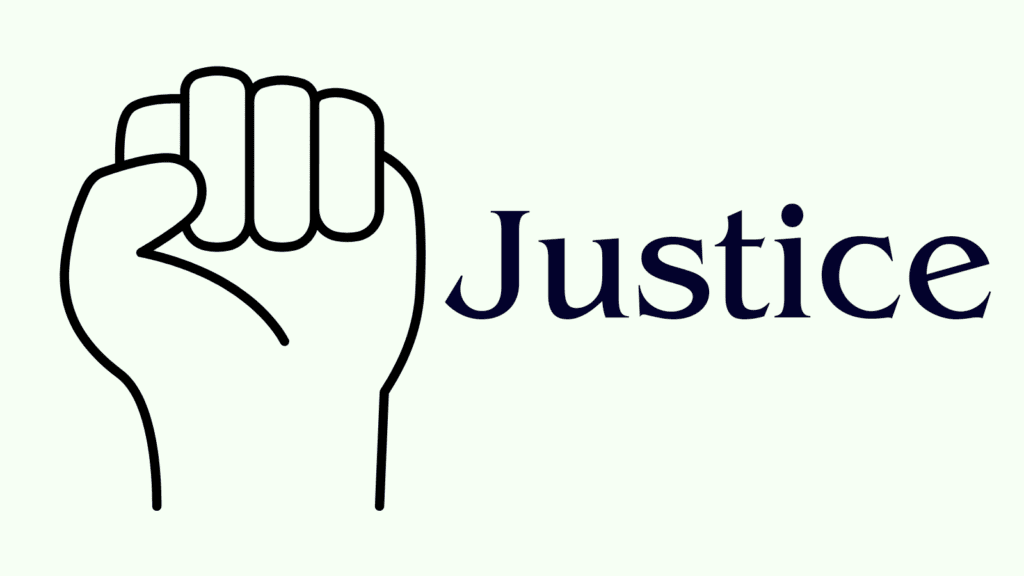Pursuing Justice: The Pillars of a Fair Society
In an ideal world, justice is the bedrock of a fair and equal society, ensuring that every individual is treated with respect, fairness, and compassion. It encompasses the principles of upholding the rights of all, addressing injustices, and promoting equality. However, achieving justice is no easy task, as it requires the collaborative efforts of individuals, communities, and institutions. In this blog post, we will explore the essential pillars of a just society and how each one plays a vital role in creating a better world for all.
Equality and Human Rights
At the core of justice lies the principle of equality. Every human being should be treated fairly, regardless of their race, gender, religion, ethnicity, or social status. Respecting and protecting human rights is fundamental to ensuring that everyone has access to opportunities, resources, and dignified living conditions. A just society promotes inclusivity, celebrates diversity, and actively fights against discrimination.
Rule of Law and Accountability
The rule of law is a crucial element in upholding justice. It means that no individual or entity is above the law, and everyone is subject to the same legal principles. A fair legal system ensures that all individuals have the right to a fair trial, access to legal representation, and protection against unlawful actions. Furthermore, accountability is vital in maintaining justice – those who violate the law must face appropriate consequences, regardless of their social or political standing.
Social and Economic Justice
True justice cannot be achieved without addressing social and economic disparities. Poverty, inequality, and lack of access to basic necessities hinder the growth of a just society. Implementing policies that provide equal opportunities for education, healthcare, and economic growth is essential in leveling the playing field for all individuals, regardless of their background.
Restorative Justice
While the traditional justice system primarily focuses on punishment, restorative justice aims to repair the harm caused by crime or wrongdoing. This approach involves bringing together the victim, offender, and the affected community to find solutions that promote healing, understanding, and reconciliation. By emphasizing rehabilitation and restoration, restorative justice offers a more compassionate and sustainable way of dealing with conflicts.
Transparent and Accountable Institutions
In a just society, institutions must operate with transparency and accountability. Governments, corporations, and public entities should be open about their actions and decisions, allowing public scrutiny and feedback. Transparent institutions foster trust among citizens and enable them to actively participate in shaping their society.
Education and Awareness
Educating society about the importance of justice and its principles is crucial for creating lasting change. Knowledge empowers individuals to recognize injustices, challenge prejudices, and actively support efforts towards a fairer world. By promoting awareness, empathy, and critical thinking, education becomes a catalyst for social progress.
Empowering Marginalized Voices
In the pursuit of justice, it is crucial to amplify the voices of marginalized communities. Historically, certain groups have faced systemic discrimination and oppression, making it difficult for their voices to be heard. Empowering these voices means actively listening to their experiences, understanding their challenges, and incorporating their perspectives in decision-making processes. By doing so, we can break down barriers and work towards a more inclusive society that leaves no one behind.
Advocacy and Grassroots Movements
Throughout history, many significant advancements in justice have been driven by grassroots movements and advocacy efforts. From civil rights to environmental justice, these movements have pushed for transformative change and inspired millions to take action. Participating in or supporting advocacy efforts can play a crucial role in raising awareness, mobilizing communities, and pressuring institutions to address issues of injustice.
Global Cooperation and Solidarity
Justice is not limited by borders. To truly achieve justice on a global scale, countries must work together in solidarity. Issues like climate change, poverty, and human rights violations require collaborative efforts from nations around the world. Recognizing our shared humanity and interdependence fosters an environment where collective action can lead to positive change for all.
Continuous Reflection and Improvement
A just society is not a destination but an ongoing process. It requires continuous reflection, self-awareness, and the willingness to acknowledge past mistakes and learn from them. Institutions, individuals, and communities should be open to feedback and be committed to continuous improvement. This process of introspection allows us to identify and address biases, prejudices, and systemic shortcomings, ensuring that justice evolves with the changing needs of society.
Embracing Mediation and Conflict Resolution
In the pursuit of justice, we must also recognize the importance of mediation and conflict resolution in resolving disputes and conflicts. Rather than resorting to violence or aggression, a just society encourages peaceful dialogue and negotiation to find common ground and reach mutually beneficial solutions. Mediation not only saves resources but also fosters understanding between parties, helping to build a more cohesive and harmonious community.
Supporting Mental Health and Rehabilitation
A just society acknowledges the significance of mental health and the impact it has on individuals who find themselves entangled in the justice system. Rather than merely punishing offenders, a just society emphasizes rehabilitation and support. Access to mental health services, counseling, and support programs for both victims and offenders can play a pivotal role in breaking the cycle of crime and promoting healing and growth.
Addressing Environmental Justice
Environmental justice is an increasingly critical aspect of justice in the modern world. It highlights the disproportionate burden of pollution, climate change, and environmental hazards on marginalized communities. A just society recognizes the importance of sustainable practices and endeavors to protect the environment for the well-being of all its inhabitants, present, and future.
Engaging in Community Building
Building a just society involves fostering strong and resilient communities. Encouraging active participation and engagement in community initiatives creates a sense of belonging and ownership among individuals. When communities unite to address challenges collectively, they become better equipped to tackle issues of inequality and injustice effectively.
Educating the Next Generation
The pursuit of justice is a legacy that must be passed on to future generations. Education plays a significant role in shaping young minds and instilling the values of justice, compassion, and empathy. By integrating these principles into the curriculum, we can equip the next generation with the tools they need to become compassionate leaders and advocates for justice.
Celebrating Progress and Acknowledging Setbacks
Building a just society is not without its challenges and setbacks. It is essential to celebrate the progress made while acknowledging that the journey towards justice is continuous and may involve obstacles. By celebrating successes and learning from failures, we can refine our approach and renew our commitment to justice.
Conclusion
The pillars of a fair society are built on the principles of equality, accountability, inclusivity, and compassion. Achieving justice requires collective efforts, transparent institutions, and a commitment to continuous improvement. By embracing diversity, empowering marginalized voices, and addressing social and economic disparities, we can create a world where justice thrives, and every individual is treated with dignity and respect. Let us work together to build a just society that leaves no one behind, and in doing so, pave the way for a brighter and more equitable future.


